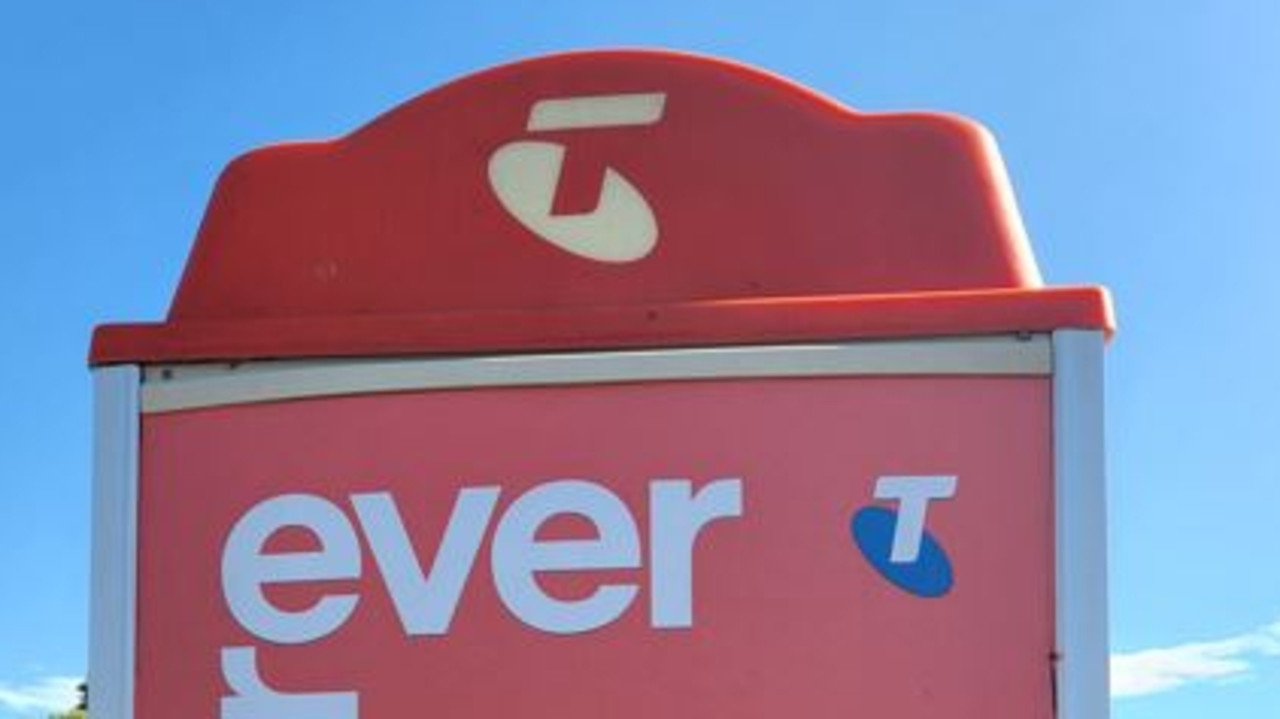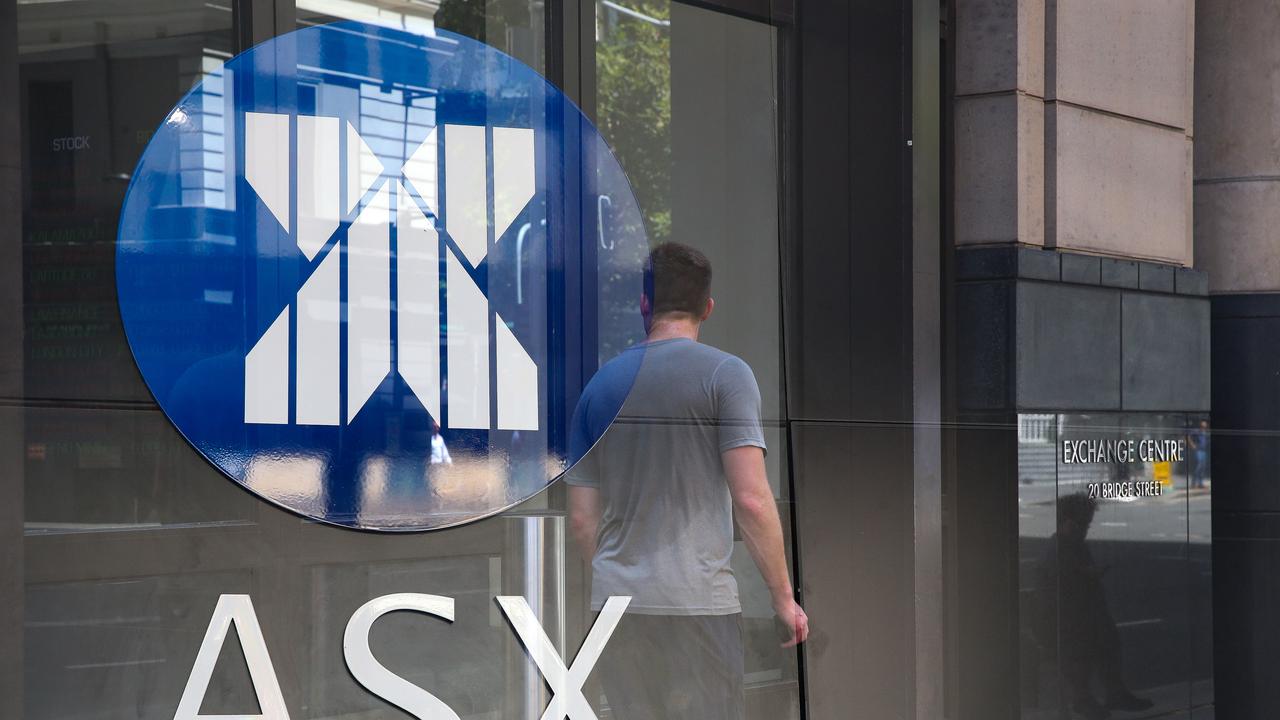Larry Kestelman ‘insulted’ by takeover offer as off-court fight appears headed for legal battle
NBL owner Larry Kestelman is adamant he won’t sell the league but as club bosses demand a greater financial share, his dispute with Illawarra Hawks owner Jared Novelly has gone public.
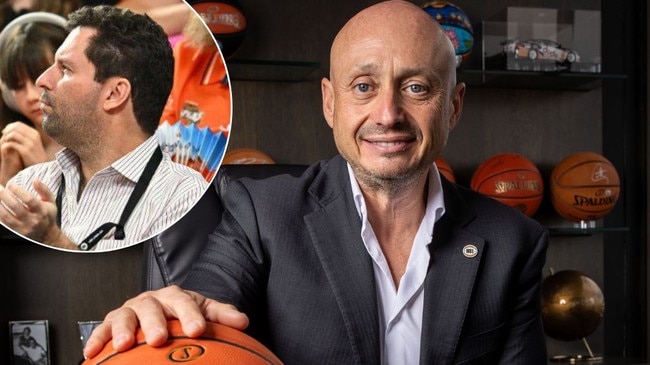
Business
Don't miss out on the headlines from Business. Followed categories will be added to My News.
It is the sports business stoush that appears likely to leap from the basketball court to the court of law, and last well into overtime.
On one side is Larry Kestelman, the National Basketball League owner who has presided over 10 years of growth for a competition which was on its knees when he paid just $7m to take control a decade ago.
On the other is Jared Novelly, scion of an American oil billionaire and Trump ally who a week ago was celebrating a sweet victory for his underdog Illawarra Hawks in the NBL finals series.
Like many bitter sporting rivalries on the court, this one off it is getting increasingly ugly. It is likely to get worse and overshadow a vital off-season for basketball in Australia.
Novelly wants Kestelman to give up ownership of the NBL, arguing the league makes profits while club owners lose tens of millions of dollars annually. He raised the prospect of a $44m package for Kestelman, a member of The List – Australia’s Richest 250, to walk away from the competition in a recent email, which was first revealed in The Australian’s Margin Call column, to the nine other club owners.
Kestelman has vehemently rejected the idea and late this week the NBL issued Novelly with a “notice of grievance” that could start a process of attempting to strip him of his NBL club ownership licence.
It is likely to also spark a legal battle that could begin as soon as next week.
The enmity between the pair and their respective camps is clear, with Novelly saying in the email he “will be filing multiple actions against (the NBL) by the end of the month (March)”.
In an interview with The Australian, Kestelman said his reaction when he learned of Novelly’s offer was “huge disappointment …(and) that it was also completely unwarranted. Insulting is the other word that comes to mind”.
“I think insulted by the fact that I have someone who’s an outsider, who hasn’t done the work, who doesn’t understand where the league has come from and thinking that he’s got all the answers – and he thinks that he’s got a better model, and he’s somehow justified to run the league.”
When asked if he will move to eventually take Novelly’s licence, Kestelman says: “We’ve indicated to Jared that we will be assessing our rights under the license agreement.”
Kestelman added that the NBL was not for sale. “If you offered me $100m, if you offered me $300m, it is not for sale.”
Regarding potential legal action he could take against Novelly, who owns the Hawks through his Crest Sports group, Kestelman says: “I will do everything that I need to do to protect the NBL.”
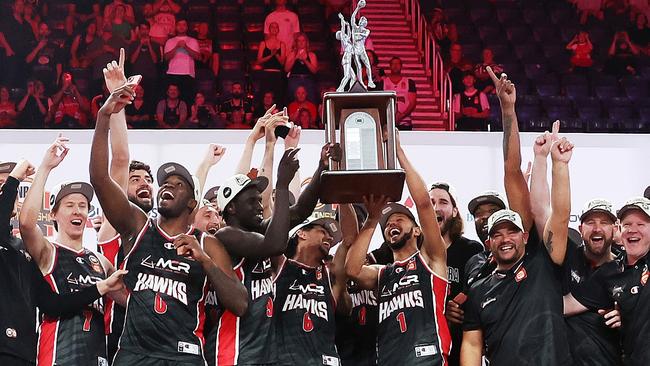
Meanwhile, Novelly’s email was also sent to the NBL on Wednesday evening. By Thursday morning, Novelly – currently in the process of formalising his appointment by President Donald Trump as ambassador to New Zealand and Samoa – received his grievance notice.
Among the accusations flying around between the two sides is that Novelly has allegedly approached fellow club owners to move their teams to the East Asia Super League that he is majority owner of.
So worried Kestelman and NBL management has been that in January, governing body Basketball Australia (Kestelman owns the NBL while BA regulates the entire sport) formally wrote to the NBL clubs to warn them off.
In the letter, obtained by The Australian, BA offered its “full support” in the NBL and that it had “full faith and confidence” in the league.
BA wrote it encouraged “open and transparent communication between the NBL and its clubs” but supported the NBL “taking any necessary steps to prevent any such campaigns from destabilising professional basketball in Australia and bringing the game into disrepute”.
The governing body also reminded clubs they could not participate in another league outside Australia “without the consent of the NBL and BA” and there was “no reasonably foreseeable scenario where consent would be granted to any club without the support of the NBL”,
But Novelly’s side has hosed down the suggestion it was trying to poach clubs from the NBL for its league, which currently has teams in countries such as Japan, South Korea and Taiwan.
Terry Egger, the vice-president of Novelly’s Crest Group (through which he owns the Hawks) told The Australian this week: “The EASL has a lot of momentum and Crest is fully committed to its growth.
“But that is completely different and separate from any issues that we are pursuing with the NBL. One does not impact the other.”
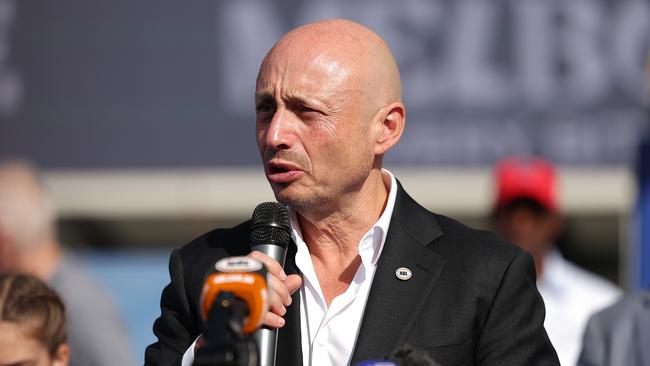
Meanwhile, relations between Novelly and Kestelman were frosty when the pair briefly crossed paths in game five of the finals series last Sunday afternoon in Wollongong.
There was a brief handshake but Kestelman did not present the trophy to Novelly when his Hawks beat Melbourne United to clinch the championship.
“I think the tension is definitely there. But I was not about to let anyone steal the moment from the public and from the NBL. Sunday was about the fans and the players and the championship,” Kestelman says. As is often the case, much of the issue comes down to money.
For much of the season as the Hawks soared to the top of the ladder playing the best basketball in its 46-year history, Novelly has been agitating behind the scenes for structural change at the NBL.
He argues that Kestelman, as league owner, has implemented a financial system that benefits him and leaves NBL club owners like Novelly having to cover an estimated $30m in operating losses this season and about $200m in the past five years. (Kestelman disputes this figure.)
Kestelman has held firm, claiming his leadership has led to the NBL having its best season ever in attendance, viewership and sponsorship terms, while the capital values of clubs keep appreciating. He has claimed the league could be worth at least $300m-$400m, given similar valuations for soccer’s A-League and other competitions.
It is, Kestelman has says, a far cry from when he took over a league close to going out of business in 2015.
“I got involved because the model of NBL was broken. And I think in 10 years, I’m going to say, I think I’ve done a good job. I’m not going to say perfect. But we’ve grown fans, we’ve grown audience, we’ve grown attendance, we’ve grown everything,” he says.
NBL clubs have been trading for up to $50m – a mark achieved when Tesla chair Robyn Denholm bought into the Sydney Kings and then took majority control last year. More recently, the New Zealand Breakers changed owners this month in a $37m deal and Kestelman sold Tasmania JackJumpers for $35m to Altor Capital, a subsidiary of ASX-listed Prime Financial.
Crucially, Kestelman owns the league itself but the owners of the clubs do not. Often, clubs own a stake in their league – as is the case in the US National Basketball Association and other competitions around the world.
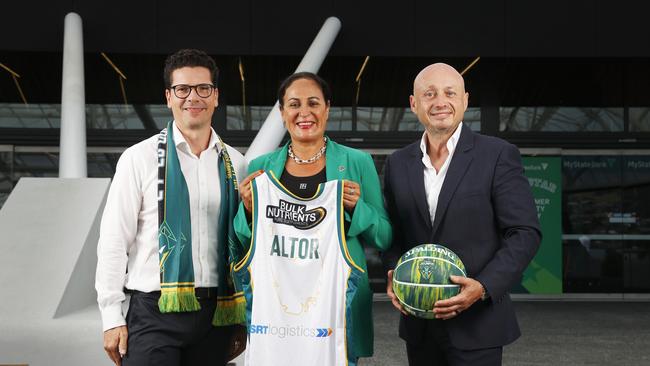
NBL clubs have been calling for Kestelman and the NBL to be more transparent, with discontent growing behind the scenes as the season progressed.
In January, seven of the 10 clubs voted to push for a change in the financial system. But multiple sources say this vote was not necessarily indicative of support for Novelly’s subsequent move to offer $9m to Kestelman to buy the league and also allow Kestelman to keep the $35m proceeds from the JackJumpers sale.
Several club owners were approached for comment, including Denholm, but were not willing to discuss matters publicly.
Kestelman has recently started paying a distribution to clubs of 25 per cent of the NBL’s net profit, but clubs accused him of not showing exact financial details as to how the profit is calculated. (The NBL says it has shared full financial reports audited by PwC but owners have disputed this.)
In late February, the clubs were sent an “advisory services final report” conducted by KPMG, to answer queries raised by them to the NBL. The report, obtained by The Australian, showed the NBL made about $6m in net profits annually for the past three years and had about $15m in related party transactions with various parts of Kestelman’s business empire (including apparel, legal, media, advisory and other services).
The report says there “no significant were noted from the ...scope areas it considered.” It also said that as the “NBL grows and matures there is a need to consider how the clarity or approach to how transactions impacting on clubs is communicated.”
“My only goal has been to grow the NBL, nothing more than that,” Kestelman says. “It is not a case where the NBL works for the benefit of my other companies.”
“So what is broken? What is it that we’re trying to fix? Clubs are at the table. They’re updated. We get their input, we get their opinions, we consult.”
A club meeting agenda seen by The Australian says there are discrepancies in the NBL’s calculation of its profit and that the league has diverted profits to Kestelman’s other companies, which have also been used to conduct league business – something he has denied.
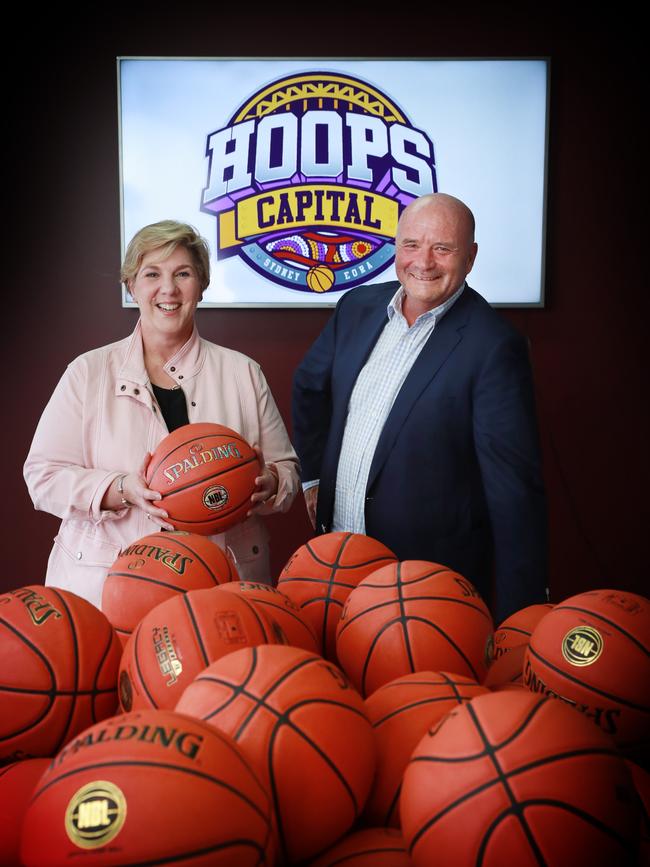
Egger says he is cognisant of the growth the league has had under Kestelman’s ownership but wants to look at “what is the next step? Can there be a brighter future where the owners have more skin in the game”?
“That’s a very different structure than what we have. We, Crest, want to pursue what’s best for a sustainable future for professional basketball in Australia,” Egger says.
When asked if he is open to a change of structure, Kestelman says: “I’m happy to look at how a model can evolve in a win-win situation – not where … one person wins and the other person loses. Or where I just give up and … I get blasted out. So I’m open if someone can show me a better model, I’m happy to explore it. I’m happy to analyse it. But it needs to be a win-win.”
There have also been conflict of interest accusations, and Kestelman is selling his last 15 per cent stake in Melbourne United and a 25 per cent share of Brisbane Bullets. He is adamant the league should not be completely owned by the clubs.
“He (Novelly) wants to go back to a club-run league, which is how it failed in the first place. This person says he is here for the clubs. But he is here for himself and his ego. People need to understand BA is in our corner and clubs are not supportive of what he is doing,” Kestelman says.
As for whether the NBL could survive without him, Kestelman says: “I think it can in 10 years time. It needs another 10 years of maturing and nurturing. I hope it can in the future, but not yet.”
More Coverage
Originally published as Larry Kestelman ‘insulted’ by takeover offer as off-court fight appears headed for legal battle




